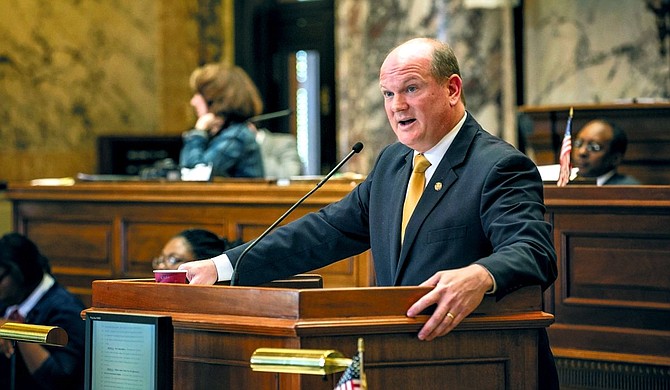A Mississippi public school teacher with 15 years of experience providing health insurance for their family took home just under $30,000 a year in net pay in 2020, a “shocking number,” a policy adviser with the Southern Regional Education Board told state lawmakers Wednesday. Photo courtesy Imani Khayyam
JACKSON, Miss. (AP) — A Mississippi public school teacher with 15 years of experience providing health insurance for their family took home just under $30,000 a year in net pay in 2020, a “shocking number,” a policy adviser with the Southern Regional Education Board told state lawmakers Wednesday.
That's only a few thousand dollars more a year than first-year teachers who were paying for only their health insurance took home, the adviser said.
“All of these are shocking numbers to us — that a Mississippi teacher potentially serving 15 years, especially one who is a single parent, is taking home a wage that can barely cover housing and utilities," board policy adviser Megan Boren said.
A teacher with 15 years of experience took home an annual salary of about $29,680 after taxes and benefits in 2020, compared with about $26,580 for first-year teachers, according to data shared by the Atlanta nonpartisan nonprofit.
A teacher with 35 years of experience took home $43,266 after taxes and benefits in 2019. The Southern Regional Education Board did not have 2020 salary figures available for 35-year teachers.
The Legislature's Senate Education Committee met Wednesday to discuss increasing teacher pay in Mississippi, the state with the lowest average teacher pay in the nation.
During the 2021 legislative session, the Mississippi Legislature approved a $1,000 raise for most teachers and a $1,100 raise for those in the early years of their careers. The raises were signed into law by Republican Gov. Tate Reeves in March.
But many contend lawmakers need to go much further to get Mississippi up to speed with other states.
According to the Southern Regional Education Board, the average teacher salary in the U.S. for 2018-19 was $62,304. For Mississippi, the average was $45,105, approximately $8,200 below the southeastern region average.
The starting salary for teachers with zero to three years of experience and a bachelor's degree in Mississippi was $37,000, about $3,300 below the regional average.
“We need to pay our teachers based on their level of professionalism,” Felica Gavin, chief operating officer at the Mississippi Department of Education, told lawmakers. "They’re not paid as professionals as in some other industries.”
Southern Regional Education Board President Stephen Pruitt said pay is only “one piece of the puzzle” when it comes to reducing teacher shortages.
Mississippi Insurance Administrator Cindy Bradshaw said health insurance plans for single teachers are affordable compared with other states but families bear a much greater cost.
In 2020, the state contributed $378 a month toward teachers' health insurance, while employees paid $40. Employees opting for a family coverage plan paid $726 a month in 2020, while the state pitched in $378. That's compared with neighboring Alabama, which charges $251 a month for a family plan. The state covers $1,091. Single-plan employees in Alabama pay $42 a month, while the state pays $477.
Republican Sen. Brice Wiggins said the state's current monthly premiums for families are cost prohibitive, especially for families with single incomes.
“What are we doing and what is the board doing to address this family coverage to attract teachers who have families so that they can provide family coverage?" Wiggins continued. “That's a policy decision we have to consider if we're talking about attracting teachers who generally are family-oriented.”
The Southern Regional Education Board offered several lawmakers ideas Wednesday for how they can better retain teachers, including deceasing monthly employee family premiums and raising teachers' starting and average salaries.



Comments
Use the comment form below to begin a discussion about this content.
comments powered by Disqus